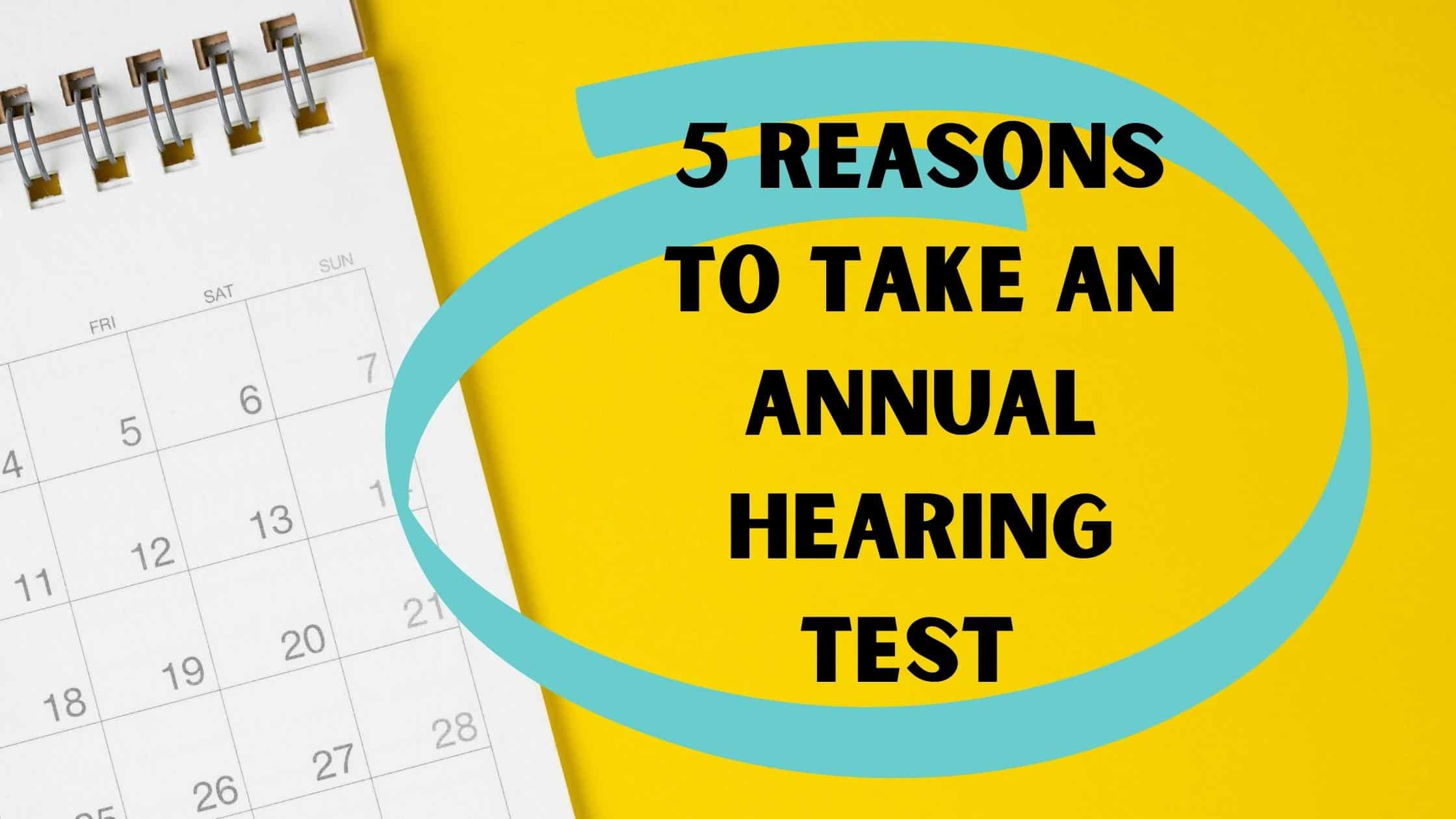
When was the last time you had a hearing test? Most people haven’t had a hearing test in at least three to five years! You might think that hearing tests are only for seniors, or those with severe hearing loss. But hearing tests should be part of your annual health checkup. When you book your annual physical exam or schedule a routine dental checkup and cleaning, consider your ears as well.
Here are five reasons to take a hearing test.
1. Uncover Hearing Loss as Soon As Possible
You’d think you would know if you had hearing loss. But the truth is that hearing loss often goes undetected for several months or years! Hearing loss can be very gradual. You might not notice the small daily changes to your hearing, and it may go unnoticed for a while.
However, even if you’re not aware of hearing loss, it can be causing problems. Hearing loss affects your overall health and wellbeing. You will start to notice problems in communicating with loved ones. There may be moments of annoyance and frustration when you can’t follow what’s being said. You may miss out on many of the moments that make life so special. You might also notice difficulty concentrating on tasks, having a hard time hearing, and following instructions at work.
Rather than ignoring your ears, uncover hearing loss as soon as possible with annual hearing tests.
2. Compare Hearing Changes from Year to Year
Getting a hearing test every year lets you easily compare your current hearing to your hearing in the past. Even if you don’t have hearing loss, you can notice trends in your hearing. For example, you may have worse hearing in certain ranges, even if it’s not enough to be considered a hearing loss.
An annual hearing test makes it easy to monitor your hearing health and see how sensitive you are to certain pitches and volumes. This lets you keep track of gradual changes in your hearing health and know when you may need to take steps to treat your hearing loss.
3. Prevent Further Hearing Loss
If you’re living with untreated hearing loss, you may be putting your hearing health more at risk every day. Have you been turning up the volume on the TV or phone? Are you exposing your ears to very loud noises trying to make out what’s being said? People with untreated hearing loss risk further hearing loss through unsafe listening practices.
Untreated hearing loss also affects your brain. When the cells in your ears stop sending signals to the brain, the cells in the auditory centers aren’t being activated. After some time, these cells may die, or be reassigned to other tasks. When this happens, you’ll lose the ability to hear certain sounds, even when you treat hearing loss. To prevent further hearing loss, treat your hearing loss as soon as possible. This is good for your ears and your brain.
4. Prevent Additional Health Problems
Hearing loss is associated with some poor health outcomes. People living with untreated hearing loss are more likely to experience loneliness, social isolation, depression, memory loss, and even dementia. Hearing loss also increases your risk of an accident or fall and increases your risk of injury and hospitalization.
An annual hearing test just takes a few minutes but monitoring your hearing health can prevent a host of health problems and improve your overall health and wellbeing.
5. Hearing Tests are Quick and Easy
Hearing tests aren’t hard. You don’t have to prepare for the test, and it takes less than an hour. During a hearing test, we’ll ask you to wear a pair of headphones. Then you will hear a series of tones or speech sounds. They’ll be at several pitches and volumes. All you need to do is let us know when you hear a sound.
This test will show us your hearing threshold at each pitch, or the softest sound you can hear at that pitch. We also take a close look at your ears to check for any other issues like a build-up of earwax or a possible ear infection.
Book Your Hearing Test Today
An annual hearing test gives you a complete picture of your hearing health every year. Together we’ll identify any health concerns or hearing loss as soon as possible and find the right treatment. Call today to book your next hearing test.
